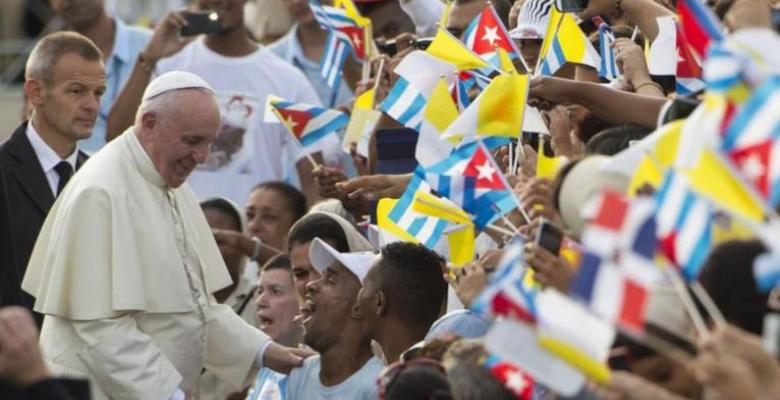Pope Francis and Cuba: Dialogue, Respect, and Sensitivity
especiales

The relationship between Pope Francis and Cuba has been one of the most significant in recent history between the Catholic Church and the island nation. Beyond formal protocol, his approach has been marked by deep pastoral sensitivity, a clear commitment to reconciliation among peoples, and sincere respect for Cuba’s history and the dignity of its people. His apostolic visit from September 19 to 22, 2015, carried not only profound spiritual weight but also political and symbolic significance.
During that visit, the pontiff celebrated Mass in Havana, Holguín, and Santiago de Cuba, where he venerated Our Lady of Charity of El Cobre, the nation’s patron saint. This gesture held special meaning for millions of Cuban believers, who saw in the pope not just the head of the Church but a compassionate and approachable shepherd. His words at Havana’s Plaza de la Revolución, where he called for a commitment to serving others, resonated far beyond church walls.
One of the most notable moments of that trip was his private meeting with Fidel Castro. Though details remained confidential, the symbolic impact was immense: two leaders, each with their own worldview, discussing topics like the environment and religion’s role in the modern world. It was, without a doubt, a sign of mutual respect —proof of a Cuba open to dialogue and pluralism.
But Pope Francis’ role regarding Cuba extends beyond that visit. He was a key mediator in the diplomatic thaw between Havana and Washington, playing a discreet yet crucial part in the 2014 restoration of U.S.-Cuba relations. His leadership bridged two nations long divided, and his presence on the island reinforced that symbolism.
A year later, in February 2016, Cuba again became the stage for a historic moment in Christianity: the first meeting in nearly a millennium between Pope Francis and Russian Orthodox Patriarch Kiril —an encounter that had not occurred since the Great Schism of 1054. This event solidified Cuba as a space for unity and understanding, transcending creed or ideology.
Francis repeatedly expressed his affection for the Cuban people, describing them as hardworking, dignified, and hopeful. He also acknowledged a human connection with Cuba’s leadership, calling the island “a symbol” in the world.
The pope always chose the path of dialogue over confrontation —not out of complacency, but from a pastoral vision that prioritizes healing divisions. In a world marked by discord, his message in Cuba was clear: build bridges, mend wounds, and promote what he called a “revolution of tenderness.”
His legacy with Cuba remains one of respect, solidarity, and faith in the power of encounter —a testament to what becomes possible when empathy guides diplomacy.
Translated by Sergio A. Paneque Díaz / CubaSí Translation Staff













Add new comment